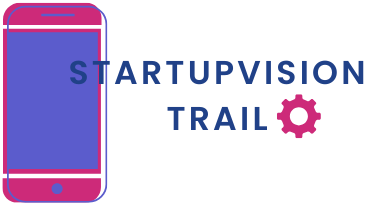Table of Contents
ToggleThe financial technology landscape is rapidly evolving, and Software as a Service (SaaS) is at the forefront of this transformation. As businesses seek to streamline operations and enhance customer experiences, SaaS solutions are becoming indispensable in the fintech sector. These cloud-based platforms offer flexibility, scalability, and cost-effectiveness, enabling financial institutions to innovate without the burden of traditional IT infrastructure.
From payment processing to risk management, SaaS applications are revolutionizing how financial services are delivered. By leveraging advanced analytics and automation, fintech companies can respond to market demands more swiftly and efficiently. As competition intensifies, understanding the impact of SaaS in fintech is crucial for businesses aiming to stay ahead in this dynamic environment.
Overview of SaaS in Fintech
SaaS revolutionizes the fintech sector by offering cloud-based solutions that maximize efficiency. Businesses leverage SaaS applications to streamline operations, reduce costs, and enhance customer experiences. With a subscription-based model, these services eliminate the need for significant upfront investments in infrastructure.
SaaS plays a critical role in payment processing, providing secure, scalable platforms for transactions. Many fintech firms utilize SaaS to automate compliance procedures, ensuring adherence to regulations. Additionally, advanced analytics within SaaS applications enable financial institutions to assess risks more accurately.
SaaS promotes rapid deployment of services, allowing companies to respond swiftly to market changes. By employing SaaS, fintech businesses can focus on innovation rather than maintaining complex IT systems. This flexibility becomes increasingly important as the financial landscape evolves, fostering a competitive advantage.
Table 1 summarizes the key benefits of SaaS in fintech:
| Benefit | Description |
|---|---|
| Cost-Effectiveness | Reduces upfront costs with a subscription model |
| Scalability | Easily adapts to changing business needs |
| Automation | Streamlines compliance, reporting, and transaction processing |
| Enhanced Analytics | Offers insights for better risk management |
| Rapid Deployment | Quick implementation reduces time-to-market |
The integration of SaaS in fintech optimizes service delivery and fosters continuous innovation. As businesses adopt these solutions, they enhance their capacity to compete in a fast-paced financial environment.
Benefits of SaaS in Fintech

SaaS brings numerous advantages to the fintech sector, transforming how financial services operate and delivering substantial benefits tailored to modern business demands.
Cost Efficiency
Cost efficiency emerges as a primary benefit of SaaS in fintech. SaaS eliminates the need for hefty upfront investments in hardware and software, replacing them with affordable subscription models. Businesses pay only for what they use, allowing for better cash flow management. According to a report by Gartner, businesses can save up to 30% in IT costs by utilizing SaaS solutions. Financial institutions can reinvest these savings into innovation and customer service enhancements.
Scalability
Scalability is a crucial advantage offered by SaaS applications. Fintech companies can easily scale services up or down based on market demands and customer needs. As customer bases grow or fluctuate, SaaS solutions adjust swiftly without the burden of overhauling existing IT infrastructure. This flexibility enables rapid responses to evolving market conditions, ensuring companies remain competitive in a dynamic financial landscape.
Accessibility
Accessibility defines how SaaS enhances fintech operations. Cloud-based platforms provide access to financial services anywhere, anytime, facilitating remote work and improving customer reach. The ability to access applications via any internet-connected device streamlines operations and boosts collaboration among teams. Research by Statista indicates that 85% of organizations adopting cloud solutions see significant improvements in employee productivity, showcasing the effectiveness of SaaS in enhancing operational efficiency.
Challenges of SaaS in Fintech
SaaS in fintech presents several challenges that companies must navigate to leverage its benefits effectively. Key challenges include security concerns and compliance regulations.
Security Concerns
Security remains a paramount challenge for SaaS providers in fintech. Sensitive financial data is vulnerable to breaches, which can result in significant financial losses and reputational damage. Threats include hacking, phishing, and insider threats. Companies must ensure data encryption, implement robust authentication protocols, and regularly conduct security audits to mitigate risks. Continuous monitoring of security measures and an established incident response plan are essential for managing potential breaches effectively.
Compliance Regulations
Compliance with regulations poses another significant challenge for fintech companies using SaaS solutions. Financial institutions must adhere to strict regulations such as the General Data Protection Regulation (GDPR) and the Payment Card Industry Data Security Standard (PCI DSS). Navigating these complex regulations involves understanding data handling requirements, customer privacy protections, and reporting obligations. SaaS providers must ensure their solutions implement the necessary compliance features, enabling fintech companies to avoid penalties and maintain trust with their customers. Regular audits and updates to compliance policies are critical for staying aligned with evolving regulatory landscapes.
Key Players in SaaS Fintech
Several companies drive the SaaS fintech sector, showcasing a mix of established companies and emerging startups that innovate the financial technology landscape.
Established Companies
Established companies in SaaS fintech leverage their extensive experience and resources to deliver sophisticated solutions.
- Salesforce: Salesforce’s Financial Services Cloud enhances customer relationship management (CRM) for banks, insurance companies, and wealth management firms. It utilizes AI to improve customer engagement and streamline operations.
- SAP: SAP provides essential SaaS solutions for core banking, enabling institutions to optimize their financial processes. Their offerings address risk management and compliance needs through integrated systems.
- Oracle: Oracle’s Financial Services Analytical Applications offer advanced analytics for risk assessment and regulatory compliance. They empower financial institutions to make data-driven decisions while ensuring adherence to regulations.
- Intuit: Intuit’s QuickBooks and TurboTax deliver cloud-based solutions for small businesses and freelancers. These products facilitate accounting, tax processing, and financial management, catering to various consumer needs.
Emerging Startups
Emerging startups in SaaS fintech are reshaping the landscape with innovative solutions tailored to meet modern financial demands.
- Brex: Brex provides a SaaS platform designed for corporate credit cards and expense management, allowing businesses to manage finances efficiently through a user-friendly interface.
- Plaid: Plaid’s API facilitates seamless connectivity between applications and users’ bank accounts, enabling secure and rapid financial transactions. Their tools enhance the development of various fintech applications.
- Chime: Chime offers a digital banking platform focusing on fee-free banking services, automatic savings features, and budgeting tools. Their approach appeals to users seeking straightforward banking solutions.
- Nubank: Nubank operates as a digital bank in Brazil, offering no-fee credit cards and user-friendly financial management tools. Its customer-centric model challenges traditional banking practices.
These established companies and emerging startups collectively enhance the capabilities of SaaS in the fintech sector, driving innovation and improving financial service delivery.
Future Trends in SaaS Fintech
SaaS in fintech continues to evolve rapidly, with several emerging trends shaping its future landscape.
- Enhanced AI Integration
AI algorithms increasingly inform SaaS solutions, offering predictive analytics that enhance decision-making processes in risk management, customer service, and fraud detection.
- Greater Personalization
SaaS providers focus on delivering personalized financial solutions, utilizing data analytics to tailor products and services based on customer behavior and preferences.
- Expanding API Ecosystems
API integrations proliferate within the SaaS fintech realm, allowing for seamless collaboration among different financial services and enabling innovative service creations.
- Focus on Cybersecurity Innovations
Upgrades in cybersecurity measures become essential as financial institutions enhance security protocols, including multi-factor authentication and real-time monitoring systems to protect sensitive data.
- Subscription-Based Models
Subscription pricing models gain traction, allowing businesses to select services that align with their specific needs without incurring substantial upfront costs.
- Regulatory Technology Solutions
As compliance demands evolve, the fintech sector sees a rise in regulatory technology (RegTech) solutions. These tools automate compliance processes, simplify regulatory reporting, and reduce human error.
- Sustainability Integration
Fintech companies increasingly prioritize sustainability, adopting eco-friendly practices and promoting responsible investment options through their SaaS applications.
- Mobile-First Approaches
Mobile technology continues to drive SaaS developments, enhancing user experiences and fostering on-the-go access to financial services across devices.
- Blockchain Technology Adoption
Blockchain’s incorporation into SaaS solutions enhances transaction transparency, efficiency, and security, particularly in cross-border payments and smart contracts.
- Customer Education Platforms
SaaS providers develop educational platforms to inform customers about financial products, promoting better financial literacy and empowering informed decision-making.
These trends highlight how SaaS in fintech prepares for ongoing innovations, positioning itself as a key driver in the financial industry’s future.
SaaS is reshaping the fintech landscape by offering innovative solutions that enhance efficiency and customer experience. As businesses adopt these cloud-based platforms, they can respond swiftly to market demands while minimizing costs. The benefits of scalability and automation empower financial institutions to focus on growth and innovation.
However, navigating security and compliance challenges remains crucial for success. Companies must prioritize robust security measures and stay informed about regulatory requirements. The future of SaaS in fintech looks promising, with trends like AI integration and enhanced personalization set to drive further advancements. Embracing these changes will be essential for fintech companies aiming to thrive in an increasingly competitive environment.




